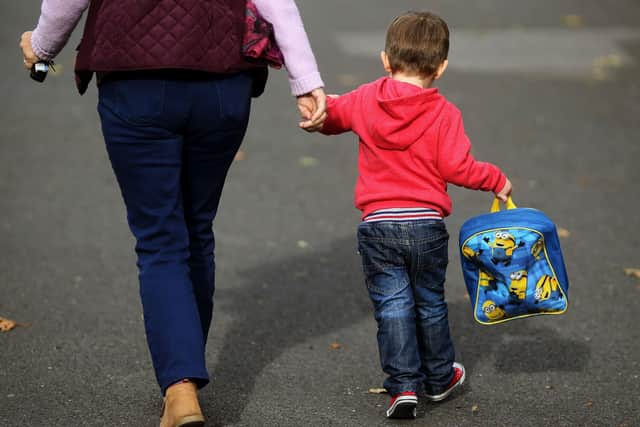Child destitution is a national scandal; let’s end it – Helen Barnard


No one should ever be destitute – finding themselves unable to afford to put food on the table, keep warm and stay clean. Nor should anyone be left with such an extremely low income that meeting everyday costs is impossible and amassing debt seems like the only option.
In the Joseph Rowntree Foundation’s latest flagship report on Destitution in the UK, we find that 2.4 million people experienced destitution in 2019, an increase of over 50 per cent since 2017. We also reveal that families with children are increasingly likely to experience destitution, with 550,000 children now growing up going through this miserable experience.
Advertisement
Hide AdAdvertisement
Hide AdSince 2017, there has been a marked increase in levels of destitution in all regions and types of places, though the greatest rise has been in northern cities and towns. The highest average rates of destitution are in the North East, followed by London and the North West. Yorkshire and the Humber itself has a higher than average rate of destitution, with Hull being one of the places with the highest proportion of people in extreme hardship.


The pandemic has shone a light on the unacceptable levels of hunger and hardship felt by people across our country. Communities have shown incredible compassion and willingness to step up in great numbers to help.
However, the fact that children are going hungry is not new. The hard truth is that for too long we, as a society, have tolerated this assault on our nation’s values. Rather than looking at systemic changes that are necessary, we have laid the burden of responding to these issues on charities and local communities.
It should concern us all that demand for food banks and other crisis services is soaring. People experiencing destitution told us that Covid-19 restrictions have pushed them even closer to the brink with their regular sources of support being harder to access.
Advertisement
Hide AdAdvertisement
Hide AdWhilst acts of looking out for one another are part of who we are, it is no substitute for ensuring that the systems that are supposed to help us keep our heads above water are not in fact dragging us under. The Government has a responsibility to act.


This latest research shows that half of all households experiencing destitution were claiming, or had applied for, Universal Credit. Inadequate benefit levels and debt deductions, particularly the repayable advance many people are forced to borrow to cover the minimum five-week wait for Universal Credit, pulled them into destitution.
In the recent Spending Review, the Chancellor said that the economic emergency is only just beginning. The stakes could not be higher for people already on the lowest incomes. Our priority must be to right the wrong of destitution.
The Government has shown that it is willing to act boldly and compassionately by introducing the £20-a-week increase to Universal Credit and Working Tax Credit until next April. Some of the people we spoke to for this project told us this had been a considerable help in aiding them to afford electricity and other essentials.
Advertisement
Hide AdAdvertisement
Hide AdYet the failure of the Chancellor to commit to making this financial lifeline permanent is deeply concerning. We are working with a coalition of over 60 organisations and bishops to warn that it would be a terrible mistake to cut Universal Credit in April at precisely the moment when unemployment is likely to peak.
As well as highlighting the crippling uncertainty and fear that the prospect of Universal Credit being cut poses to millions of families, the coalition also strongly urges the Government to extend this same support to disabled people and carers who have wrongly been excluded from the £20 increase because they are claiming legacy benefits.
Furthermore, the Government should also work alongside claimants to tackle the issues associated with the minimum five-week wait and redesign the system of unaffordable debt deductions so that they do not continue to be a major driver of destitution.
We are undoubtedly going to face tough economic times in the months ahead. It is crucial we learn the harrowing lessons from this appalling rise in destitution and realise that cutting support for those on the lowest incomes would strike at the heart of who we are as a nation.
Advertisement
Hide AdAdvertisement
Hide AdHelen Barnard is director of the York-based Joseph Rowntree Foundation.
Support The Yorkshire Post and become a subscriber today. Your subscription will help us to continue to bring quality news to the people of Yorkshire. In return, you’ll see fewer ads on site, get free access to our app and receive exclusive members-only offers. Click here to subscribe.
Comment Guidelines
National World encourages reader discussion on our stories. User feedback, insights and back-and-forth exchanges add a rich layer of context to reporting. Please review our Community Guidelines before commenting.